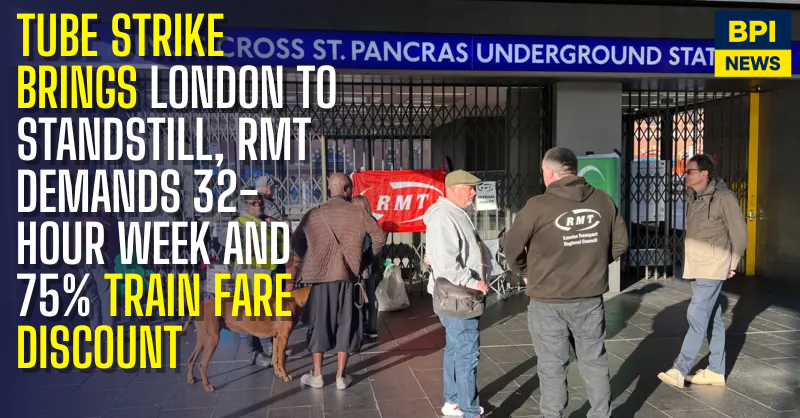Thousands of commuters are facing severe disruption this week as a wave of strikes by London Underground staff halts services across the capital.
The action, led by the Rail, Maritime and Transport (RMT) union, began on Friday and will continue until Thursday 11 September. From Monday until the end of the walkout, there will be little or no Tube service, with no trains running before 8am.
While the Elizabeth line, London Overground and trams will continue to operate, they are expected to be much busier than usual.
Demand for travel information overwhelmed Transport for London’s website on Monday morning, with users met by an “internal server error” message when trying to access updates on line closures and alternative routes. TfL has urged people to plan ahead and allow extra time for journeys.
Union Demands
The strike follows a breakdown in negotiations between TfL and the RMT. Around 10,000 staff, including drivers, signallers and maintenance workers, have walked out. Their demands include:
- A 32-hour working week, effectively reducing to four days.
- A 75% discount on all nationwide train travel for TfL staff.
Economic Impact
Business leaders have warned of serious financial consequences. Muniya Barua, deputy chief executive of BusinessLDN, said the strikes were “hugely frustrating” and could cost London “hundreds of millions of pounds.”
She added: “It will hit firms that rely on footfall especially hard, particularly those in hospitality, retail and the cultural sector. At a time when the economy is weak and firms are already reeling from a National Insurance hike, the economic cost of these strikes could run into hundreds of millions of pounds.”
The group urged both sides to reach an agreement urgently to avoid further damage to businesses and London’s reputation among visitors and investors.
This week’s strikes are the first to shut down the network since March 2023, when the mayor intervened with emergency funding to avert further industrial action.


